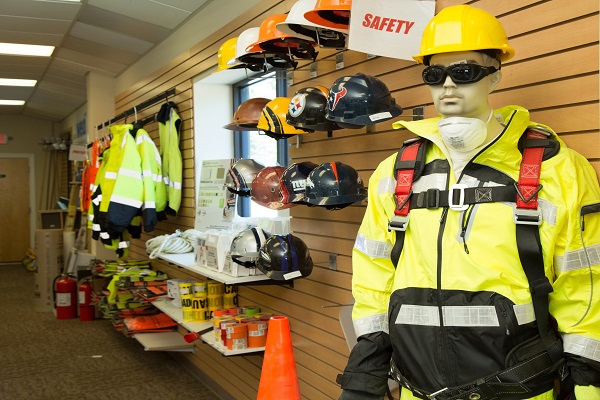
Safety shops are essential for providing the tools and equipment necessary to prevent accidents and ensure well-being in a variety of environments. From workplaces to homes, the proper safety gear can reduce the risk of injury and even save lives. These shops are typically stocked with a wide range of products, including personal protective equipment (PPE) Safety shop, fire safety tools, first aid kits, and more specialized gear designed to manage hazards in specific industries.
One of the main categories of products found in safety shops is personal protective equipment. PPE includes items such as hard hats, safety goggles, gloves, and high-visibility clothing, all designed to protect individuals from various types of hazards. For example, hard hats protect workers from falling objects, while safety goggles shield the eyes from debris or chemical splashes. Gloves are essential in many industries, offering protection from cuts, burns, or exposure to harmful substances. These basic items can be lifesaving and are often a legal requirement in workplaces that pose a physical danger to workers.
Fire safety equipment is another key product line in any safety shop. Fire extinguishers, smoke detectors, fire blankets, and alarms are crucial in both residential and commercial settings. Fire extinguishers come in different types, such as those meant for electrical fires, grease fires, or chemical fires, and having the correct type on hand is essential in preventing a small fire from turning into a devastating event. Smoke detectors are another vital tool, offering early warning of potential fires and giving occupants time to evacuate. These items are often required by building codes, emphasizing their importance in everyday safety.
First aid supplies are a critical component of any safety shop’s inventory. Having a well-stocked first aid kit can make a significant difference in an emergency. These kits should contain essentials such as bandages, antiseptics, tweezers, and burn ointment. More advanced kits may also include CPR masks, splints, and wound dressings. In many workplaces, particularly those in high-risk industries, having accessible first aid kits is not only recommended but legally required. In addition, some safety shops also offer specialized first aid training, helping to ensure that people are prepared to handle emergencies effectively.
For industries dealing with hazardous materials, safety shops provide containment and spill control products. Spill kits, for example, are essential in preventing chemical spills from spreading and causing further harm to workers or the environment. These kits often include absorbent materials, protective clothing, and tools for cleaning up dangerous substances. For businesses handling hazardous chemicals or waste, having the right spill control equipment is both a safety measure and a regulatory requirement.
Working at heights is another area where safety equipment is indispensable. Safety shops often carry fall protection gear such as harnesses, lanyards, and anchor points. Falls from heights are one of the leading causes of workplace accidents, particularly in construction, roofing, and maintenance industries. Proper fall protection equipment can prevent serious injuries and fatalities, and regulations often mandate its use in high-risk jobs.
Modern safety shops also offer cutting-edge technology to enhance safety. Devices such as GPS trackers, emergency communication tools, and personal alarms provide additional layers of security, especially for workers in remote or dangerous locations. These tools enable individuals to communicate during an emergency and can be crucial in locating them quickly during search and rescue operations.
In summary, safety shops play a critical role in promoting health and safety across a wide range of environments. Whether providing basic PPE, fire safety tools, first aid supplies, or specialized equipment for high-risk industries, they ensure that individuals are prepared to handle potential hazards effectively. Investing in safety equipment is a proactive approach that not only protects people from harm but also creates a culture of awareness and preparedness in any setting.